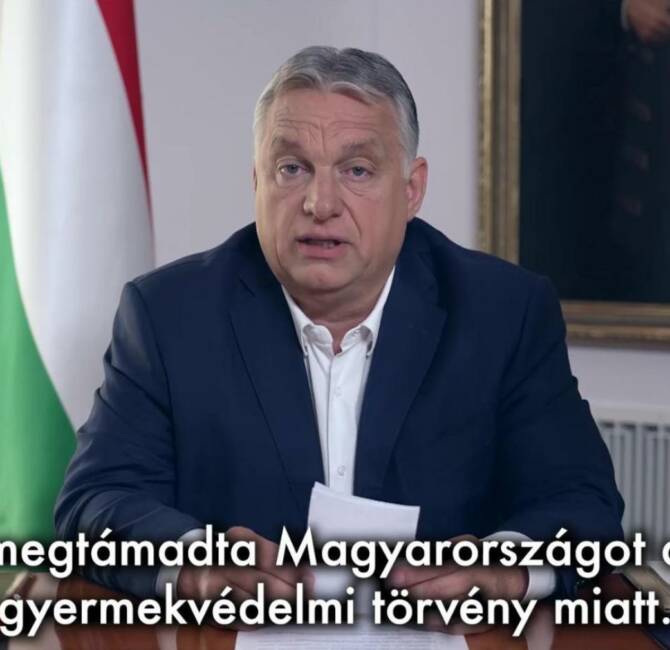Slovakia – Slovakia is again going through a political crisis. After having been in office for just over 20 months, Eduard Heger’s government was voted out by the National Council – Slovakia’s unicameral parliament – last Thursday when a motion tabled by the liberals was supported by 78 out of 150 MPs. The Heger government is a coalition of the conservatives of OľaNO and Sme Rodina with the centrists of Za ľudí. It had lost its majority in the National Council last September when Richard Sulík’s liberal SaS (Freedom and Solidarity) left the coalition.
A surreal scene at the presidential palace
At the centre of this new political crisis is the leader of the OľaNO movement, Igor Matovič, the previous prime minister and current finance minister, whose resignation the liberals were demanding. It was believed Prime Minister Eduard Heger had agreed with Richard Sulík that his twenty SaS MPs would not vote to oust the incumbent government if Igor Matovič agreed to step down.
Matovič did go to the presidential palace and handed his resignation to an official, but at the next moment he snatched the letter out of the official’s hands.
That surreal scene surpassed even what Igor Matovič had previously accustomed his countrymen to, and it sealed the fate of the Heger government.
On Friday, following the no-confidence vote in the National Council,
President Zuzana Čaputová dismissed the Heger government and announced early elections that are expected to take place by June 2023.
The social democratic opposition calls for early elections
There have been vivid reactions on the Slovak political scene. Unsurprisingly, Prime Minister Eduard Heger deplored the outcome of the vote and hit back at the liberals’ usual reproaches towards his government, saying: “The vote of no confidence against the government has clearly shown that it did not rely on the votes of fascists and extremists, although many have been trying to claim just that for months.
I regret that SaS needed the fall of a democratic, anti-corruption, and reformist government to convince itself of this.”
For his part, Igor Matovič, the root cause of the fall of the coalition and the liberals’ bête noire, has remained true to himself, declaring: “I would like to encourage all the people of Slovakia to raise their heads. If we do it together and there are enough of us, we will defeat the mafia together.
After this day, I consider SaS to be a mafia party.”
According to the liberal leader, Richard Sulík, who was economy minister before his party left the ruling coalition,
“Three scenarios are currently on the table after the fall of the government. The first is an agreement in Parliament to form a new government, the second is a government of experts appointed by the President, and the third is early elections.
(…) We can imagine, under certain conditions, that we will allow the formation of a new government, that we will give it a vote of confidence while remaining a constructive opposition. We are being consistent in this.
An early election would mean the return of Robert Fico.”
Former social democratic Prime Minister Peter Pellegrini (Hlas-SD), for his part, has advocated a return to the ballot box: “A bad and incompetent government has fallen. This is the most beautiful gift offered to the Slovak people for Christmas.
To Hlas-SD, the only alternative is early elections.”
Richard Sulík’s second bête noire, former Prime Minister Robert Fico, the leader of the main opposition social democratic party Smer-SD, also considers that
“the government of Eduard Heger was extremely bad and was threatening the future of the Slovak Republic as well as subverting public finances, social policies, and the rule of law”.
He declared himself in favour of early parliamentary elections too, “the ideal date being May or early June”, anticipating President Čaputová’s decision.
It should be recalled that the incumbent government was already the result of a crisis between OľaNO and the SaS liberals that Igor Matovič, then prime minister, had provoked with a joke on the radio, when he said that he had offered Ukraine’s Transcarpathia region to Russia in exchange for deliveries of the anti-Covid vaccine Sputnik V. This was a year before the outbreak of the invasion of Ukraine by Russia.




